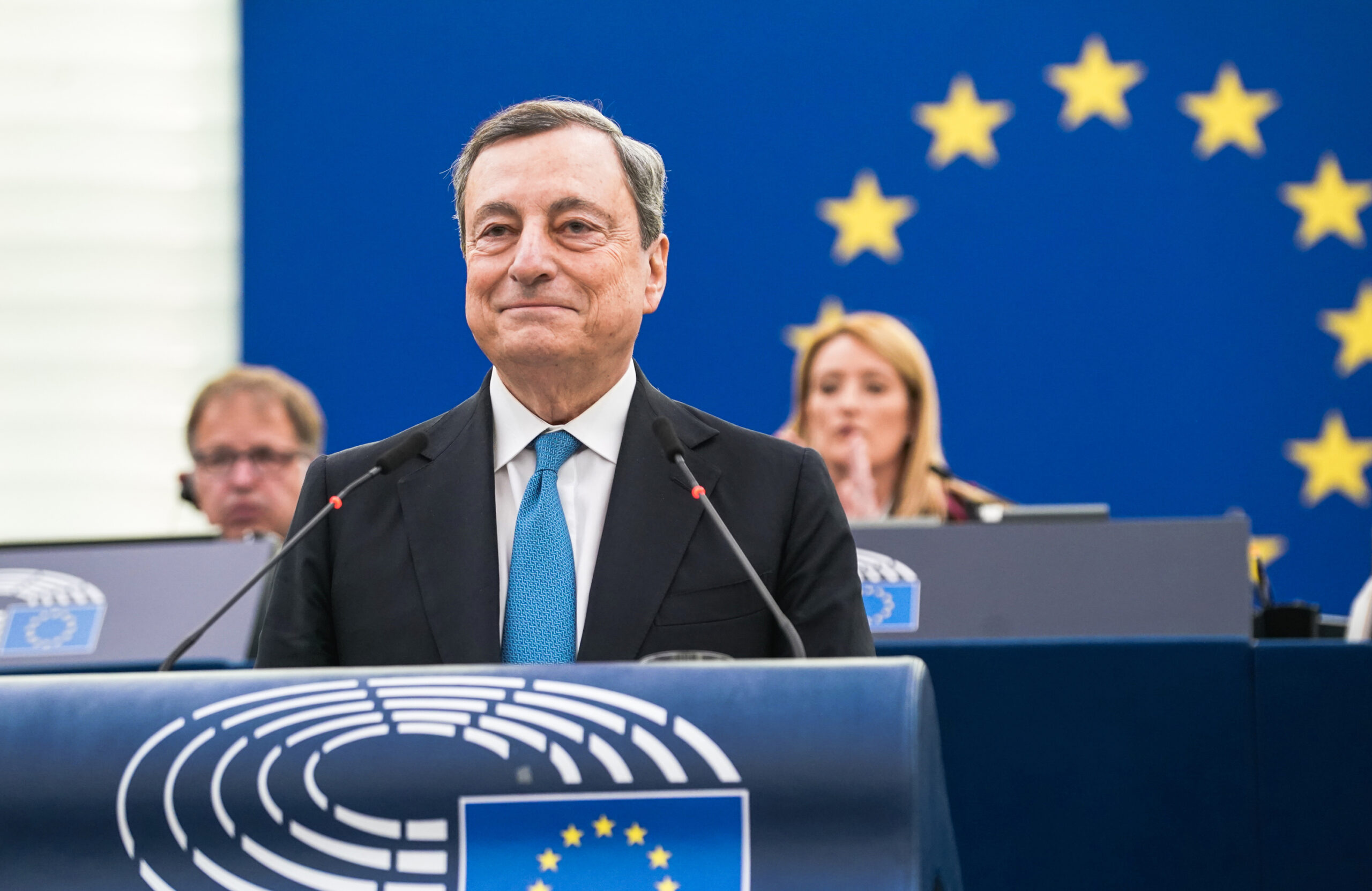Dragons? The demiurge of crises

Giuliano Cazzola reads and comments on the speech held by Mario Draghi at La Hulpe on the competitiveness of the European Union
There are some parts of the speech with which Mario Draghi wanted to anticipate the contents of the document on competitiveness (which will be presented in its entirety to the new Commission that will be born from the now upcoming European Parliament elections) which, in my opinion, deserved greater prominence in the comments.
Draghi reiterated the need for immediate action in sectors with the greatest exposure to green, digital and security challenges. We can already glimpse a greater balance in the indication of these priorities compared to the environmentalist fury that has dominated European politics for years. We add – after the events of the last two years – particular attention to the issue of safety. “Our main competitors – explained the former prime minister – are taking advantage of the fact that they are continental-sized economies to generate scale, increase investment and gain market share for the sectors where it matters most. In Europe we have the same advantage in terms of natural size, but fragmentation holds us back.
Thus the discussion has reached a crucial point which five years ago would not have been considered worthy of reference, concerning the program of the Commission and the Council. Mario Draghi began his speech against fragmentation, starting from the example of defence, where – in his opinion – the lack of an economy of scale is hindering the development of European industrial capacity. Draghi recalled that this problem was recognized in the recent European Strategy for the Defense Industry. “The top five operators in the United States – explained Draghi – represent 80% of its largest market, while in Europe they make up 45%. This difference largely arises from the fact that EU defense spending is fragmented. Governments do not procure much together – collaborative procurement represents less than 20% of spending – and they do not focus enough on our market: almost 80% of procurement in the last two years has come from non-EU countries. To meet new defense and security needs – he concluded on this point – the Union must intensify joint procurement, increase coordination of spending and interoperability of its equipment as well as substantially reduce international dependencies.
This reasoning is the other side of the coin of what Ursula von der Leyen wanted to reiterate in the same hours, taking up the themes already developed in the last speech on the state of the Union: war in Europe is perhaps "not imminent", but "not it's impossible". A "common European defense" has therefore become necessary ("joint procurement" on weapons as happened on vaccines and gas). “In recent years – said Ursula – we have lived under the illusion of peace. Putin has used this dividend resulting from peace for a new war”.
“The risks of war – continued von der Leyen – should not be exaggerated, but we must prepare. And all this starts with the urgent need to rebuild, replenish and modernize the armed forces of the Member States. Europe should strive to develop and produce the next generation of successful operational capabilities. And to ensure that it has the sufficient amount of material and technological superiority that we may need in the future. Which means strengthening our defense industrial capacity over the next five years." That is, over the next legislature: the same time frame outlined in Mario Draghi's speech.
“The simple truth – concluded the president – is that we cannot afford the luxury of staying calm. We have no control over elections or decisions in other parts of the world (read: USA, ed. ). With or without the support of our partners, we cannot allow Russia to win."
In Italy we are all a bit behind the scenes. Evil. Many have argued, in these circumstances, that Draghi's speech was a programmatic speech in view of an important role that could be offered to him within the renewed Union summits. If this operation were possible and were to be carried out, it would open up the prospect of leadership of the free world for Europe, especially if the USA, with Trump's victory (God forbid!) in November, ended up abdicating the mission pursued throughout last century, when American armies crossed the ocean twice to come to the aid of the Old Continent.
Mario Draghi, after all, is the demiurge who faces crises: that of the euro, of the pandemic, of restarting at the right pace, of overcoming energy supplies which also create political dependence, without suffering collapses in the needs of the production system, of support to families and businesses. We expect from him a Whatever it takes also for the defense of freedom.
This is a machine translation from Italian language of a post published on Start Magazine at the URL https://www.startmag.it/mondo/discorso-mario-draghi-difesa-europea/ on Thu, 18 Apr 2024 05:33:30 +0000.
